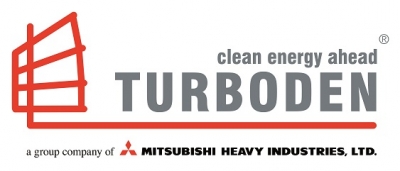 Since late ‘90s renewable energy has been living a boom that would have shaped the future of the power sector in Europe and in the rest of the world. Renewable sources, specifically bioenergy, solar, wind and geothermal energy have been on the verge of a boom that proved to be even almost uncontrolled in many countries. Renewable sources gained public awareness while few players and few countries started opening possibilities and granting incentives (or specific regulation) to boost the industrial footprint overall efficiency and reduce their overall CO2 emissions through the exploitation of waste heat streams.
Since late ‘90s renewable energy has been living a boom that would have shaped the future of the power sector in Europe and in the rest of the world. Renewable sources, specifically bioenergy, solar, wind and geothermal energy have been on the verge of a boom that proved to be even almost uncontrolled in many countries. Renewable sources gained public awareness while few players and few countries started opening possibilities and granting incentives (or specific regulation) to boost the industrial footprint overall efficiency and reduce their overall CO2 emissions through the exploitation of waste heat streams.
Industrial players use to release this heat in the environment someway paying to remove it.
The ORC technology represents an excellent opportunity to exploit waste heat and increase the overall efficiency of systems and to contribute to a sensible reduction of greenhouse gases released through electric or mechanical power production.
What’s going on today?
Nowadays natural gas is playing an increasingly important key role in the world’s economy, as it is seen as a viable alternative to oil, whose reserves are being depleted in many parts of the world. For the United States of America, one of the most oil dependent countries in the world, natural gas is an attractive alternative also thanks to the ability to produce natural gas domestically (including shale exploitation).
The use of this fossil fuel in the United States and elsewhere in the world depends upon the many natural gas pipeline networks that have been set up. These transmission pipelines carry the precious resource efficiently at high pressure over thousands of miles, from the well where it is produced right to the users. In order to keep the high pressure required, the gas has to pass through gas compressor stations, located approximately every 100 miles along the pipeline, in order to boost the pressure and ensure that it can keep flowing. The gas in compressor stations is normally pressurized by dedicated turbines, electric motors and reciprocating engines driving compressors. Hot exhaust from the prime movers in a gas compressor station constitutes a potential precious free source of heat.
Turboden ORC units can convert waste heat from the exhaust of gas turbine-driven (or reciprocating engines-driven) compressors into clean, reliable, cost-effective electricity, or mechanical power resulting in an increased overall efficiency of the system.
Turboden recovery solutions allow to enhance the efficiency of oil & gas transmission systems, therefore to boost financial turnover as well as to contribute to companies environmental sustainability.
ORC technology can be efficiently adopted also in other different fields of application of the oil & gas industry, such as exploitation of flare gases, heat recovery from refinery processes and liquid streams associated with oil wells. ORC systems are easy to integrate, flexibly operating even on highly inconstant heat sources, and completely automated (leaving the industrial user focused on his/her own core process).
Turboden ORC systems have already been chosen by prestigious customers (overall 280 references worldwide) for several heat recovery applications due to high reliability, high level of efficiency, minimum running costs and ease of installation. In 2010 Turboden breaks into the North American market with its first 1 MWe ORC unit in a heat recovery system downstream of a gas turbine in a gas compressor station, where the waste heat from the turbine exhaust gas is recovered in a heat recovery boiler and transformed into electric power. In the same year Turboden supplied a 1.8 MWe unit that recovers heat from the associated gas coming from oil extraction through controlled combustion (instead of flaring) in an oil refinery plant in Russia.
Turboden is already studying advanced heat recovery systems for major oil & gas players located in the Middle East, Russia, and Central Europe, and it has strategically decided to invest more and more in applications for this industry.
So, let’s talk about how you can pick this low-hanging fruit available for your industry.
Have you ever thought about investing in a technology that, recovering waste heat, can produce electric and mechanical power, exploitable into the production processes?
In your opinion, what are the main barriers that prevent the penetration of these solutions in the oil & gas sector?
Do you reckon this innovative system worthy or, by contrast, not enough impacting to be of interest for the oil & gas sector?
What are the ways to push the diffusion of these systems in the industry?
Want to learn more? Register for Turboden webinar ‘Waste Heat: Free Fuel for Efficiency Improvement in Oil & Gas Industry’ live on the 26th of June at 10AM New York / 3PM London
